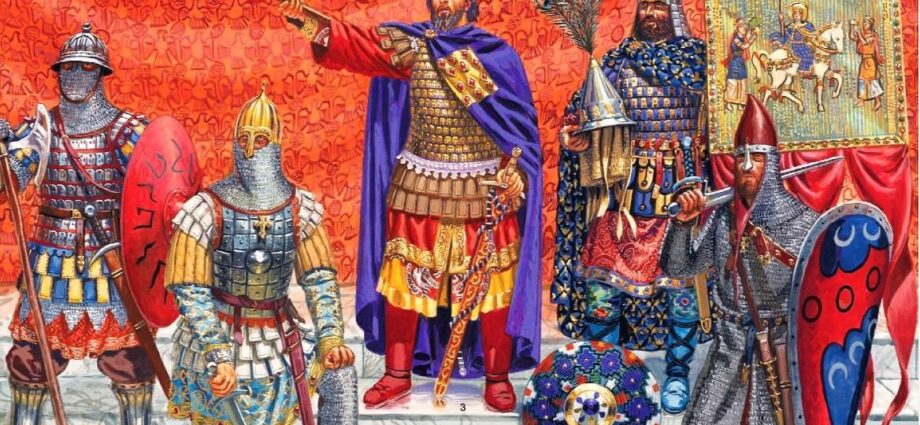Miklagard – you know this word? And for so many Swedish and Rus (who also had Swedish roots) young men there was probably no word more pleasant than this. Miklagard, Constantinople, capital of the Byzantine Empire – why did it become so desired for warriors from the far north? As it is common for young men, it was about adventures and gold.
The word “byzantine” is sometimes used to describe complex political systems with lots of dangers, backstabbing, hidden policies and power struggle of everyone against everyone. It was indeed true for the Byzantine Empire, and twice so for its royal court where stakes in the never-ending political intrigues were high, and a loser could easily be mutilated (often blinded and castrated) or killed. Local troops, including the famous heavy tagmata cavalry, were also deeply included in this circle of intrigues, and thus there was no guarantee of their loyalty for any Emperor. But wise Emperors want to have a long life, and the only way to have it in such an environment is to have troops loyal only to him personally. And as even the local elites, tagmata, could not be fully trusted, the only way is to hire those warriors from abroad, and preferably the best warriors in which role, at that time, were seen the fierce vikings.
We have the information about Varangian Guard serving to the Byzantine Emperors since the year of 872, when Emperor Basil the Macedonian signed a treaty with the Rus to serve him, but most likely it was present even years before as Basil I is known for streamlining lots of bureaucratic and diplomatic moments, thus often his decrees formalized and extended what was already present. In the earliest treaty the Rus were to provide experienced warriors to serve as the guard of Basil I, and probably the payment was to be made to them directly rather than to some their Prince or Lord.
